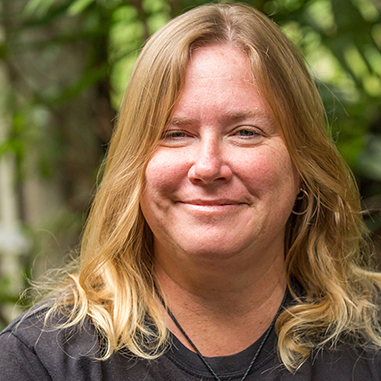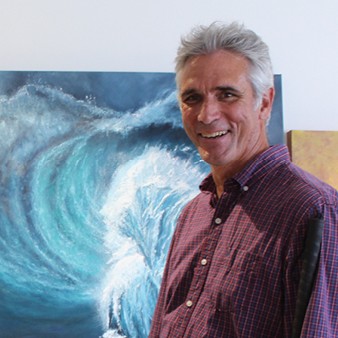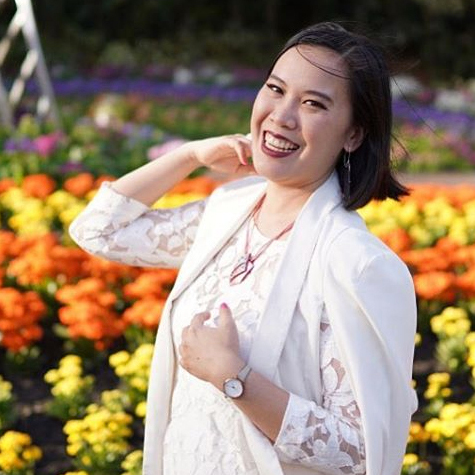Speaker 0 00:00:00 You've heard of the national disability insurance scheme, but how much do you know about it? Find out what it means, how it works and how to apply for access at carers Queensland's free workshop. Understanding the NDI S find out more, check for events coming up near year and book your spot
[email protected]. You can also call us on 1300 triple 9, 6 3 6
Speaker 0 00:00:32 Joyce and control a podcast, celebrating people with disability, brought to you by carers Queensland, indice, local area coordination partner in the community. The key to being more inclusive is to listen. If you're not sure whether your sport, your event, your facilities are accessible to people with disability, ask and be prepared to act on what they tell you. It's tempting to think of accessibility in terms of the big ticket items, like getting a grant to build a ramp to the clubhouse, but it could be as simple as an attitude change and a welcoming smile. Later this episode, we'll meet Paralympian Ellis Applejack. She's part of Paralympic Australia's athletes commission, making sure the voices of athletes with disability are heard at every level, but if you're part of a sports group or club and wondering whether you could be more inclusive, there are tools available to help sport Australia has an inclusive sport framework to help you assess where you are right now and figure out your next steps. I caught up with sport Australia's Nick Abrams to find out how it works.
Speaker 2 00:01:41 Well. The inclusive sport framework is a, it's a five step process that was created by sport Australia to help sports and clubs to become more inclusive. So we've got five different steps. So I might just break them down. We've got step one, which is analyzing that too, which is committing step three, which is updating and expanding step four, which is communicating and step five, which is reporting and reviewing. So I might just go through each of those briefly one by one. So step one, analyzing that's about identifying your organization, strengths, gaps, and opportunities. So looking at your strengths would include having a look at what you currently have in place to help promote diversity and inclusion. I'm looking for the gaps is more about looking at what you can still do or what you still need to do to prevent things like discrimination or exclusion.
Speaker 2 00:02:30 And then once those gaps are identified, um, you flip them around and you turn them into opportunities. So by filling those gaps, organizations can become more inclusive. Step two, about making the commitment. So that's about really committing your club or your sport to inclusion. So that could involve developing an inclusion statement or something similar to help demonstrate that you are in fact, an inclusive organization and that, you know, you're making a commitment to provide a safe and welcoming environment for all of your participants. Um, step three is about updating and expanding. So at that stage, you've got your inclusion statement, but it's about updating your policies, your codes, your procedures, your templates, and linking them to inclusion. So it's about reviewing what else your organization does and linking those things to inclusion as well. So that might include things such as looking at other strategies, other programs or initiatives, and linking them to your inclusion statement.
Speaker 2 00:03:25 Step four, that's about communication. I think clubs and sports do this quite well. Um, it's about communicating your inclusion framework in your inclusion frame of team members, to your volunteers, to the community. Um, you can do a lot of things to do this. You can hold community information sessions. You could, um, create an inclusion section on your website. And, you know, within that section, you can outline your inclusive policies, your codes, your strategies, your programs, anything that links back to inclusion. Um, if you have a club that has a newsletter, you can talk about inclusion in your newsletter. And again, it's all about letting the community within the club and the wider community know that, you know, you are creating a welcoming and safe environment for people to, to, to come down and, and to compete and to enjoy your club and enjoy your sport.
Speaker 2 00:04:13 Um, step five, that's about reporting and reviewing that's about continually reviewing and updating your increase it practices. So you might do that quarterly. You might do that annually, um, you know, whatever works best for your club or your sport. It might be linked to your annual report or your AGM. I know that sport Australia, we're constantly, I'm continually reviewing and updating everything that we've got up on our website, um, when it comes to inclusion and you know, every now and then we do a bit of a refresh and make sure that we've got the, um, all the latest information on there for people to access
Speaker 0 00:04:47 Inclusion has so many different branches. But if we look specifically at, uh, disability inclusion, what sort of things might clubs be considering?
Speaker 2 00:04:57 I think in the first instance, my advice would be to have a look at your club, have a look at your club facilities. See if you pick up on anything, um, any type of barriers when it comes to when it comes to physical access issues. Um, I think also having to look at how people get in touch with your club from a communication point of view. So right now I'm thinking of maybe people with a visual impairment or hearing impairment, making sure that, um, your club is accessible when it comes to communication. So people with any type of visual or hearing impairment can, um, get in touch. Um, I think talking to people that have a disability, whether it's within your club or outside of your club, that can be really, really helpful getting that expert advice. I'd say don't be afraid to do that. I think that, um, somebody who might have a disability or, or a different need, um, they will be best placed to tell you, you know, what you can do to make your club more accessible, more welcoming.
Speaker 0 00:05:54 You talk about disability access. A lot of people's minds go straight to the expensive infrastructure stuff like having to install ramps or a new toilet facilities. Do clubs worry that improving access is going to be expensive?
Speaker 2 00:06:09 Let me look. I think that's a, that's a really good question. I think that that's a big one and, um, I think it's definitely a barrier for clubs and maybe even a perceived barrier. I think that, um, things like ramps and fantastic, but they're really expensive. There's big ticket infrastructure items. Um, they can, they can cost a lot and clubs don't always have the budget for those types of things, but, um, sometimes it's just about being welcoming to people with different abilities and talking to them and finding out what else you can do in the first instance without spending a lot of money. I think that when it comes to some of those more expensive infrastructure related items, there are people that can help. Um, you know, having a look at what's available through your local government, the state government, through the federal government, having to always keep it on the lookout for grants. And I think clubs are really good at doing that. Uh, fundraising as well is a fantastic way, but it is a lot that you can do, you know, in the meantime, just by having a chat to people that might have different abilities and finding out, um, you know, what you can do in the first instance to help them access your club with it better.
Speaker 0 00:07:08 So true. There's one example from central Queensland where there's a soccer club that was able to be more accessible for apply with low vision just by using a different color.
Speaker 2 00:07:18 Yep. And I've heard, I've heard a lot of stories like that, and that's the thing you don't know what you don't know. And sometimes that's why it is great to just get out there and to talk to people and find out, you know, what are the little things that you can do?
Speaker 0 00:07:29 It's the value of Australian sport being more inclusive?
Speaker 2 00:07:34 There are so many benefits. I think we'd be here all day if I listed them all. But, um, just, just to name a few being more inclusive can help include increased, uh, clubs, membership, volunteer, and participant base. Um, it can help expand sponsorship opportunities. Um, it'll help a club to develop stronger and better connected community. It'll help contribute to the positive, um, physical and mental health, um, within the clubs community and within the water community as well. Um, can help strengthen the sustainability of a club and it can also increase, um, the community support for clubs. So it's definitely a win-win
Speaker 0 00:08:10 Nick, if people would like to find out more, maybe they're involved with local sports club and thinking, well, maybe this inclusive sports framework is something I need to be hooking into. Where's the best place to go to get some more information?
Speaker 2 00:08:24 Yeah. Well look, if you go to our website, which is sport oz.gov dot a U, which is S P O R T a U s.gov.edu, um, you'll be able to find all that information.
Speaker 0 00:08:37 If you're looking for maximum flexibility and choice, self-managing your indice plan might be the right option for you care. Queensland's free introduction to self-management workshop covers the benefits of self managing your plan, how it works, and the practical side of arranging support and managing payments. This workshop is offered in-person and online. Find out more check for events coming up near year and book your spot
[email protected]. We've heard from sports Australia's Nick Abrams about their inclusive sport toolkit. And the path of that is how important it is to be open to communication, to talk with people about what they want and what they need to be fully included. That's also a focus for one of the newest members of the Paralympic Australia athlete commission. The commission exists to help Paralympic Australia stay engaged and connected with the Paralympian community gold coast wheelchair basketball player. Ella Sabal, Jack was recently selected for the group and she found out while she was in quarantine on her way, home from Tokyo, for her first Paralympic games. It's another advocacy role for ELA, as well as being on the international wheelchair, basketball federations athletes, steering committee, their roles, Ella has taken because she wants to make sure the voices of people with disability are always part of the conversation.
Speaker 3 00:09:58 I think growing up with, uh, having a disability and sort of having people speak for me when I was younger, I think that was where it started. And I could see what was happening in the people on the table, making these decisions for me that were the right decisions. And I guess I could see it from an early age that that wasn't fair. And, you know, I had, you know, random medical doctors or whoever it may be saying that I needed this, or, you know, you need that. And I'm like, well, I don't need that. And so that having that background and then coming into sport, I can see sort of people getting forgotten almost because their voices aren't heard. And I just, I don't think that's, that's very fair and I'll always stand up for what I believe in. And I'll always, you know, back back my teammates than the everyone behind me. So yeah, it's just something that I am really passionate in because nobody gets left behind and we want to bring everybody up so that we can all be our best and do our best. And that means everybody's voice has to be heard.
Speaker 0 00:11:09 It's also a primary school teacher where she's passionate about positive mental health and wellbeing, and that's something she's reading to her new role on the athlete commission
Speaker 3 00:11:18 From an athlete's point of view, I guess we know what all athletes go through instead of the hardships and the triumphs and celebrations that we all go through. And I think for, for me, and for our team, which is the Paralympic team, I guess I want everybody to have the tools in their toolkit to be able to succeed on the, on the field or swimming or wherever it is, and also off the court as well. So, um, they are able to provide these tools and opportunities for everyone to live a successful life, um, in and around sport and also away from sports.
Speaker 0 00:11:55 How important is the mental health of athletes?
Speaker 3 00:11:59 It's everything like you can be physically strong and prepared, but unless, unless our mental game and our preparation, if we haven't worked on that, or we have lacked in some places we won't be able to perform. So being able to think of an athlete is not just physical, but also mental as well. So we have to be able to practice and do all of the things that we've learned to go brain so that we can perform. So I think, especially in my, in my sport basketball, it's a team sport, so we have to be able to play together. And, um, if I'm having an off game that doesn't just only impact me, it impacts a lot of people around me. So to be able to use everything that I know and learn, so I can be my best so that my team can be the best. I think that, you know, it is so, so crucial.
Speaker 0 00:12:56 You can find out more about Paralympic Australia on their
[email protected], and for more on sports Australia's inclusive sport framework, head to sport halls.gov.edu, and look for safe and inclusive sport. That's S P O R T R U s.gov.edu for more sporting goodness, scroll back through the choice and control archives. We've met the ginger cloud modified rugby program, para ice hockey, Queensland, the accessible water sports club to name just a few, have a look and see what else you can find.
Speaker 0 00:13:35 Thanks for joining us a choice and control a carer's Queensland podcast. For more information about the national disability insurance scheme or carers Queensland, contact us
[email protected]. You can call us on one, 300 triple 9, 6, 3, 6, or head to Facebook and look for carers Queensland and the IIS


